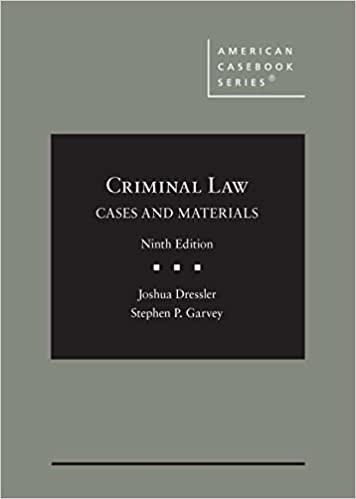Answered step by step
Verified Expert Solution
Question
1 Approved Answer
This is all the information I got. Need Help answering the question. it won't load the pictures if i don't cut off the end but
This is all the information I got. Need Help answering the question.
it won't load the pictures if i don't cut off the end but the end isn't important information NAFT was a New York corporation engaged in the business of importing electronic equipment. In 1994, NAFT purchased $1.8 million in goods from Huston Electronics Company, a Taiwanese corporation. Huston was affiliated with C.M. Hung Company from which it had purchased $400 million of goods over a seven-year period of time. NAFT typically made payments to C.M. Hung by means of letters of credit opened with Barclays Bank. These letters of credit required the seller to present certain documents to Barclays in order to receive payment. In 1993, Chiao Tung, a Taiwanese bank, became involved in these transactions. Chiao Tung made payments to Huston, obtained the required documentation, and presented the documentation to Barclays to obtain reimbursement pursuant to the letters of credit. In the 1994 transaction, Chiao Tung paid $1.8 million to Huston and sought reimbursement from Barclays pursuant to letters of credit, which NAFT had opened to cover the price of the goods. Barclays denied payment to Chiao Tung on the ground that Chiao Tung had failed to provide inspection certificates that were required by the terms of the letters of credit. Chiao Tung responded that its payment to Huston was made in reliance on the fact that inspection certificates were missing in over 40 prior transactions involving Huston and Chiao Tung, yet Barclays reimbursed Chiao Tung on each of those prior occasions because the inspection certificates were eventually supplied, or because NAFT waived the requirement. Huston and Chiao Tung subsequently declined to forward the original bills of lading for the disputed goods to NAFT and instructed Maersk, Inc., one of the carriers, to seize the goods. This action prompted NAFT to commence litigation against Huston, Chiao Tung and Maersk to prevent removal of the goods from the United States. Chiao Tung filed counterclaims against NAFT alleging that NAFT had improperly received the goods without paying for them. Should past waivers of documentary discrepancies serve to waive the right to insist on strict compliance with respect to subsequent transactions? Why or why not? What relevance, if any, should a course of dealing have on the requirement of strict compliance with the terms of letters of credit? North American Foreign Trading
NAFT was a New York corporation engaged in the business of importing electronic equipment. In 1994, NAFT purchased $1.8 million in goods from Huston Electronics Company, a Taiwanese corporation. Huston was affiliated with C.M. Hung Company from which it had purchased $400 million of goods over a seven-year period of time. NAFT typically made payments to C.M. Hung by means of letters of credit opened with Barclays Bank. These letters of credit required the seller to present certain documents to Barclays in order to receive payment. In 1993, Chiao Tung, a Taiwanese bank, became involved in these transactions. Chiao Tung made payments to Huston, obtained the required documentation, and presented the documentation to Barclays to obtain reimbursement pursuant to the letters of credit. In the 1994 transaction, Chiao Tung paid $1.8 million to Huston and sought reimbursement from Barclays pursuant to letters of credit, which NAFT had opened to cover the price of the goods. Barclays denied payment to Chiao Tung on the ground that Chiao Tung had failed to provide inspection certificates that were required by the terms of the letters of credit. Chiao Tung responded that its payment to Huston was made in reliance on the fact that inspection certificates were missing in over 40 prior transactions involving Huston and Chiao Tung, yet Barclays reimbursed Chiao Tung on each of those prior occasions because the inspection certificates were eventually supplied, or because NAFT waived the requirement. Huston and Chiao Tung subsequently declined to forward the original bills of lading for the disputed goods to NAFT and instructed Maersk, Inc., one of the carriers, to seize the goods. This action prompted NAFT to commence litigation against Huston, Chiao Tung and Maersk to prevent removal of the goods from the United States. Chiao Tung filed counterclaims against NAFT alleging that NAFT had improperly received the goods without paying for them. Should past waivers of documentary discrepancies serve to waive the right to insist on strict compliance with respect to subsequent transactions? Why or why not? What relevance, if any, should a course of dealing have on the requirement of strict compliance with the terms of letters of credit? North American Foreign Trading Step by Step Solution
There are 3 Steps involved in it
Step: 1

Get Instant Access to Expert-Tailored Solutions
See step-by-step solutions with expert insights and AI powered tools for academic success
Step: 2

Step: 3

Ace Your Homework with AI
Get the answers you need in no time with our AI-driven, step-by-step assistance
Get Started


